#i am so so so grateful to live in a world where mourning doves exist
Text

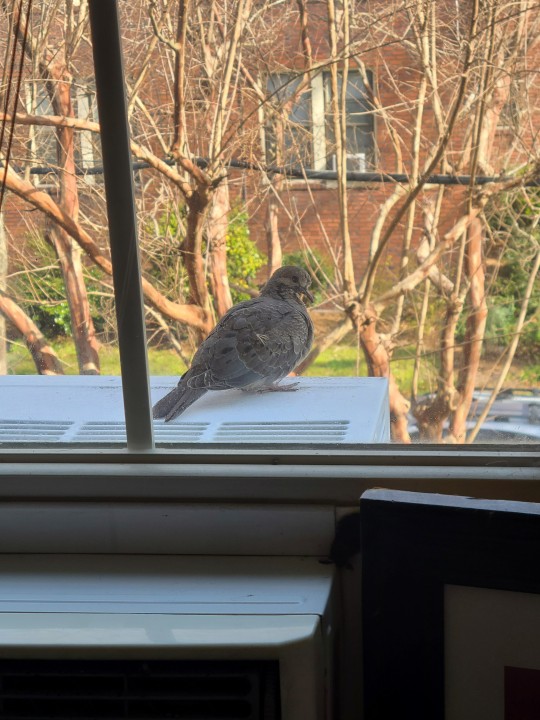
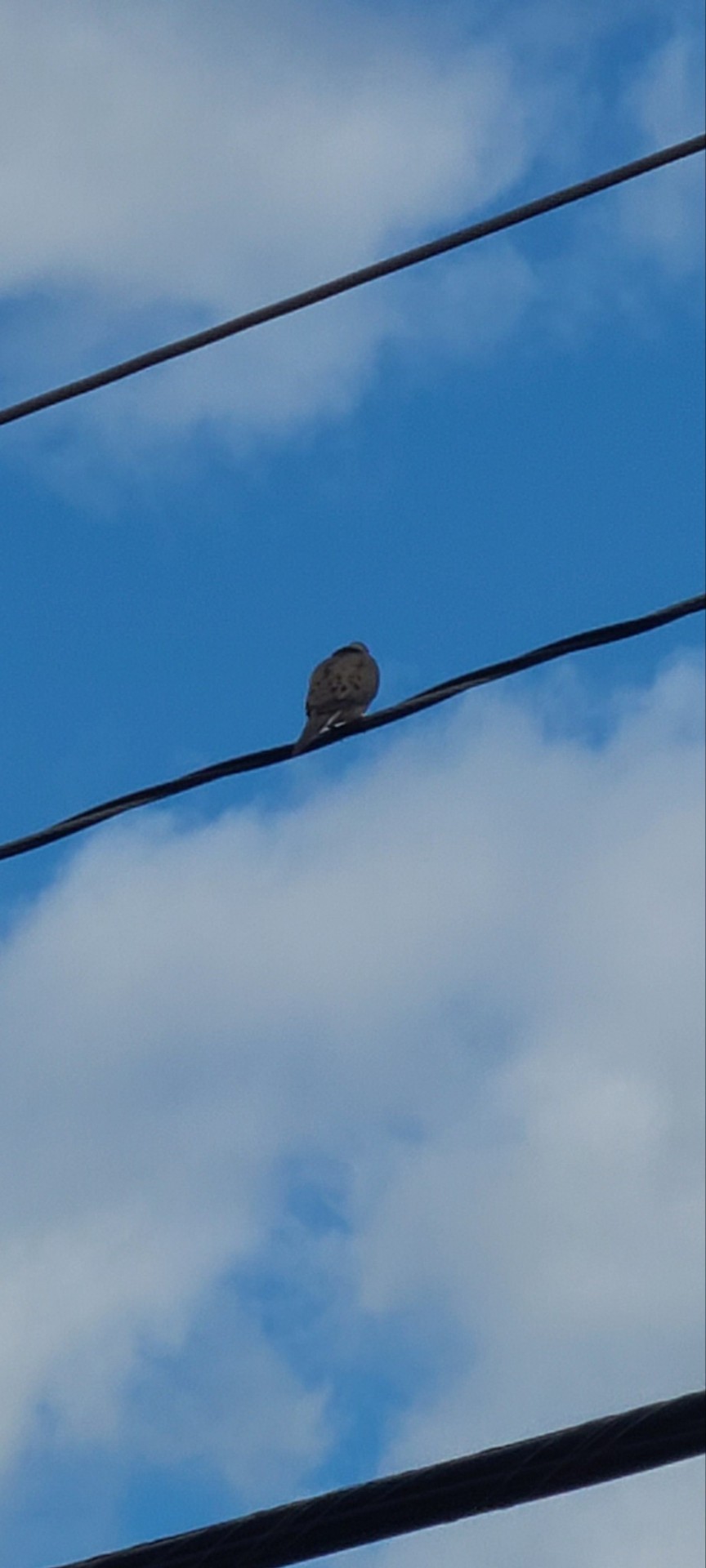
Dove friends!!! c:
#i am so so so grateful to live in a world where mourning doves exist#every time i hear their little coos my body surges with joy#mourning doves#🕊️🕊️🕊️#i love them c':
2 notes
·
View notes
Note
You really helped me to understand dazai’s real side, and the way you explained in detail was very helpful , i didnt know he was very “complex” if thats the right word for it? thank you! 🙏🙏 I also was wondering if its not too much or go into more detail of what characteristics would someone need for dazai to open up to them, if thats makes sense? Again thank you🙏🙏
I would think that for Dazai to open up to someone all he needs is for them to accept and put forth the effort to understand him. The real Dazai-sensei also made me feel like that was all he wanted, but no one in his life ever seemed to give him the acceptance and understanding he was looking for.
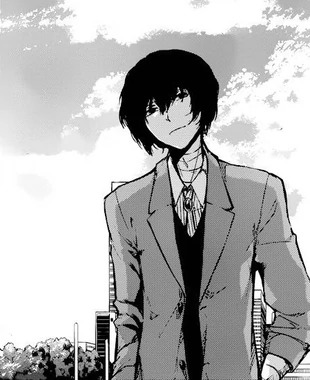
»»————- »»————- »»————-«« ————-«« ————-««
Because I know the real Dazai Osamu better than the BSD character, I’ll try and use his quotes from No Longer Human to explain how he viewed other people and what he may have wanted from them:
How Dazai Viewed People/Society
“Unhappiness. There are all kinds of unhappy people in this world. I suppose it would be no exaggeration to say that the world is composed entirely of unhappy people. But those people can fight their unhappiness with society fairly and squarely, and society for its part easily understands and sympathizes with such struggles.“ (source)
“For someone like myself in whom the ability to trust others is so cracked and broken that I am wretchedly timid and am forever trying to read the expression on people’s faces…“ (source)
“Society. I felt as though even I were beginning at last to acquire some vague notion of what it meant. It is the struggle between one individual and another, a then-and-there struggle, in which the immediate triumph is everything. Human beings never submit to human beings. Even slaves practice their mean retaliations. Human beings cannot conceive of any means of survival except in terms of a single then-and-there contest. They speak of duty to one’s country and suchlike things, but the object of their efforts is invariably the individual, and, even once the individual’s needs have been met, again the individual comes in. The incomprehensibility of society is the incomprehensibility of the individual. The ocean is not society; it is individuals. This was how I managed to gain a modicum of freedom from my terror at the illusion of the ocean called the world. I learned to behave rather aggressively, without the endless anxious worrying I knew before, responding as it were to the needs of the moment.“ (source)
“I am congenitally unable to take much interest in other people.” (source)
“I have tried insofar as possible to avoid getting involved in the sordid complications of human beings. I have been afraid of being sucked down into their bottomless whirlpool.“ (source)
“I am convinced that human life is filled with many pure, happy, serene examples of insincerity, truly splendid of their kind—of people deceiving one another without (strangely enough) any wounds being inflicted, of people who seem unaware even that they are deceiving one another… . I find it difficult to understand the kind of human being who lives, or who is sure he can live, purely, happily, serenely while engaged in deceit.“ (source)
What Dazai Feared, Lacked, and Wanted From Others
“I felt so grateful, so happy for that gentle smile that I averted my face and wept. I was completely shattered and smothered by that one gentle smile.” (source)
“Though I have always made it my practice to be pleasant to everybody, I have not once actually experienced friendship. I have only the most painful recollections of my various acquaintances with the exception of such companions in pleasure as Horiki. I have frantically played the clown in order to disentangle myself from these painful relationships, only to wear myself out as a result. Even now it comes as a shock if by chance I notice in the street a face resembling someone I know however slightly, and I am at once seized by a shivering violent enough to make me dizzy. I know that I am liked by other people, but I seem to be deficient in the faculty to love others. (I should add that I have very strong doubts as to whether even human beings really possess this faculty.) It was hardly to be expected that someone like myself could ever develop any close friendships—besides, I lacked even the ability to pay visits. The front door of another person’s house terrified me more than the gate of Inferno in the Divine Comedy, and I am not exaggerating when I say that I really felt I could detect within the door the presence of a horrible dragon-like monster writhing there with a dank, raw smell.” (source)
“People talk of “social outcasts.” The words apparently denote the miserable losers of the world, the vicious ones, but I feel as though I have been a “social outcast” from the moment I was born. If ever I meet someone society has designated as an outcast, I invariably feel affection for him, an emotion which carries me away in melting tenderness.” (source)
»»————- »»————- »»————-«« ————-«« ————-««
Based on the quotes above, Dazai-sensei doesn’t hold other people in high regard. He feels like they are untrustworthy, boring, unempathetic, insincere, and view everything as a competition. To him society is a free for all and people everything people do is motivated by moving up in society, getting more people on their side, and proving how they are better than the next person. Dazai-sensei doesn’t have any reason to go out of his way to build a relationship with someone and he won’t unless his fundamental view of others changes.
Even though Dazai-sensei doesn’t trust others, he still leads a very lonely existence. This puts him in a sad predicament because while he can’t trust others he craves and needs others in order to be happy. In No Longer Human he mourns the fact that while he is polite and follows society’s rules he still hasn’t experienced true friendship. He has played the part of a clown in order to keep others from becoming angry with him; it’s better that they are laughing at him than judging, criticizing, or belittling him. Because of this he will never be comfortable around someone who doesn’t understand and who hasn’t experienced being a “social outcast” the way he has. Dazai wants a friend who accepts him for who he is, is sympathetic of the struggles he goes through because he doesn’t fit the mold, who he doesn’t have to act and put on a show for, and who will be able to truly care about him. Even a simple “gentle smile” at a moment when he is weak and exposed, where most people would look down on him or be stern with him, could reduce him to tears.
»»————- »»————- »»————-«« ————-«« ————-««
Because Dazai-sensei is like that, it is my assumption that BSD Dazai would also need the same consideration, acceptance, and empathy from someone in order to trust and befriend them. Ango remarked a few times that Oda needed to be more stern with Dazai and keep him in line, but Dazai opened up to Oda because he never did that. Oda understood what Dazai was like, listened to him go on about death and suicide, accepted him, relied on him, and gave Dazai the chance to be himself and drop the act he put on for everyone else. Dazai never felt threatened, unwanted, unnecessary, or like Oda was looking down on him. Where others would be shocked or give him disapproving looks, Oda never did that to Dazai. That is why Dazai was able to consider Oda a friend.
In the current plot line Atsushi is filling that role. Atsushi is the only member of the ADA who shows concern for Dazai. The other members accept that Dazai is the way he is, but they don’t go beyond that and try to understand why and even if they do understand they don’t do anything about it. Dazai knows that there are people who understand what he’s like. Mori, Chuuya, Hirotsu, and most likely other members of the Mafia as well fell into this category but Dazai was never friends with them or had much of a relationship with them outside of their roles within the Mafia. So ever since Oda died Dazai had been alone and friendless. But after Atsushi joined the Agency things have changed. Where most people would just let Dazai go try to off himself and not worry about it Atsushi was different and, even though he was starving and on the brink of death himself, he dove into the water to save Dazai’s life (and how many people have ever tried to actually stop Dazai from dying?). Where the rest of the ADA just continued with their normal day after Dazai went missing Atsushi was the only person who wanted to search for him. Even in less life threatening situations, like the party to welcome Kyouka into the Agency, Atsushi is the only person to notice that Dazai isn’t there and wonders where he is. Of course Atsushi isn’t the same as Oda, but there are similarities and Dazai has surely noticed them. Dazai also seems to open up more toward Atsushi than anyone else, and that alone shows how much Atsushi’s concern and acceptance of him has affected Dazai.
»»————- »»————- »»————-«« ————-«« ————-««
So… this was another really long explanation. I really love Dazai-sensei (to point out the obvious). I hope that my rambling makes sense, and thank you for the ask!
#asks#dazai osamu#dazai#quotes#novel#no longer human#analysis#bungo stray dogs#bungou stray dogs#bsd
402 notes
·
View notes
Text
Little Fires Everywhere: Thoughts
Little Fires Everywhere (Celeste Ng)
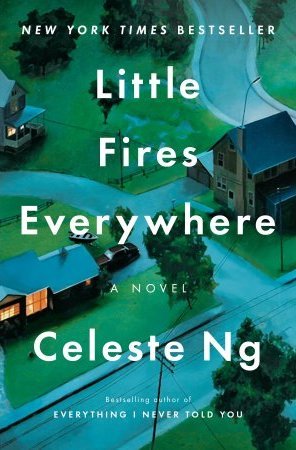
I feel like Little Fires Everywhere is like a trap of sorts—it draws you in quickly, under the pretense of some light entertainment, and then hits you hard with moments of intense poignancy and frustration. I wanted to read more books by Asian American authors this year because I wanted to come to terms with my identity as a Chinese American. I needed to understand how I had been approaching that part of myself, and also to hear the stories of other people who had gone through the same thing—especially if those experiences were sometimes shameful, terrifying, or filled with guilt, as mine have often been. It wasn’t until college that I started being proud of my heritage; there are still moments when I unfortunately feel ashamed of that part of myself, or somehow feel lesser than those around me. But I’ve also started to appreciate the unique beauty of being Asian American—the amazing resilience and reflection I’ve received by being part of a culture that is complex, and contradictory, and somehow immensely messed up and exquisite at the same time.
Little Fires Everywhere managed to pack so much about Asian American-ness, motherhood, and self identity into a seamless narrative. I remember messaging a friend at the beginning of the novel that “it was entertaining, but seems like just a light read. I kind of expected it to push more on Asian American issues.” But the more I read, the more I realized that there were lessons interwoven throughout the story that could only have been learned through intense, real experiences. I love how Ng describes the “sureness” possessed in children from wealthy and established families—a feeling I always got from my childhood friends who lived in houses with kitchen islands in nice neighborhoods, but that I never felt I held inside myself. I love how Ed Lim, the lawyer, reflects on the difficulty of finding books and dolls that his daughter can relate to—it’s something I noticed in all my picture books about kids with curly golden hair, and it’s something I am actively working on because I don’t want my future daughter or son growing up without characters who look like them.
Here are some parts I thought were particularly memorable:
On stealing from people who don’t notice:
“She had cried all the way to Lafayette, where they would stay for the next eight months, and even the prancing china palomino she had stolen from the girl’s collection gave her no comfort, for though she waited nervously, there was never any complaint about the loss, and what could be less satisfying than stealing from someone so endowed that they never even noticed what you’d taken?”
On the “sureness” or efficacy felt in people from established families:
“Even the younger Richardsons had it, this sureness in themselves. Sunday mornings Pearl and Moody would be sitting in the kitchen when Trip drifted in from a run, lounging against the island to pour a glass of juice, tall and tan and lean in gym shorts, utterly at ease, his sudden grin throwing her into disarray. Lexie perched at the counter, inelegant in sweatpants and a tee, hair clipped in an untidy bun, picking sesame seeds off a bagel. They did not care if Pearl saw them this way. They were so artlessly beautiful, even right out of bed. Where did this ease come from? How could they be so at home, so sure of themselves, even in pajamas? When Lexie ordered from a menu, she never said, ‘Could I have...?’ She said, ‘I’ll have...’ confidently, as if she had only to say it to make it so. It unsettled Pearl and it fascinated her.”
On covering up naïveté with “bookish wisdom”:
“She could see the similarities between these two lonely children, even more clearly than they could: the same sensitive personalities lurking inside both of them, the same bookish wisdom layered over a deep naïveté.”
On the ability of wealth to draw you away from the problems you want to solve:
“Of course she understood why this was happening: they were fighting to right injustices. But part of her shuddered at the scenes on the television screen. Grainy scenes, but no less terrifying: grocery stores ablaze, smoke billowing from their rooftops, walls gnawed to studs by flame. The jagged edges of smashed windows like fangs in the night. Soldiers marching with rifles past drugstores and Laundromats. Jeeps blocking intersections under dead traffic lights. Did you have to burn down the old to make way for the new? The carpet at her feet was soft. The sofa beneath her was patterned with roses. Outside, a mourning dove cooed from the bird feeder and a Cadillac glided to a dignified stop at the corner. She wondered which was the real world.
The following spring, when antiwar protests broke out, she did not get in her car and drive to join them. She wrote impassioned letters to the editor; she signed petitions to end the draft. She stitched a peace sign onto her knapsack. She wove flowers into her hair.”
On parents and touch:
“Parents, she thought, learned to survive touching their children less and less. As a baby Pearl had clung to her; she’d worn Pearl in a sling because whenever she’d set her down, Pearl would cry. There’d scarcely been a moment in the day when they had not been pressed together. As she got older, Pearl would still cling to her mother’s leg, then her waist, then her hand, as if there were something in her mother she needed to absorb through the skin. Even when she had her own bed, she would often crawl into Mia’s in the middle of the night and burrow under the old patchwork quilt, and in the morning they would wake up tangled, Mia’s arm pinned beneath Pearl’s head, or Pearl’s legs thrown across Mia’s belly. Now, as a teenager, Pearl’s caresses had become rare—a peck on the cheek, a one-armed, half-hearted hug—and all the more precious because of that. It was the way of things, Mia thought to herself, but how hard it was. The occasional embrace, a head leaned for just a moment on your shoulder, when what you really wanted more than anything was to press them to you and hold them so tight you fused together and could never be taken apart. It was like training yourself to live on the smell of an apple alone, when what you really wanted was to devour it, to sink your teeth into it and consume it, seeds, core, and all.”
On regrets:
“‘Most of the time, everyone deserves more than one chance. We all do things we regret now and then. You just have to carry them with you.’”
On the lack of good Asian representation in toys for kids:
“But there was no doll with black hair, let alone a face that looked anything like Monique’s. Ed Lim had gone to four different toy stores searching for a Chinese doll; he would have bought it for his daughter, whatever the price, but no such thing existed.
He’d gone so far as to write to Mattel, asking them if there was a Chinese Barbie doll, and they’d replied that yes, they offered ‘Oriental Barbie’ and sent him a pamphlet. He had looked at that pamphlet for a long time, at the Barbie’s strange mishmash of a costume, all red and gold satin and like nothing he’d ever seen on a Chinese or Japanese or Korean woman, at her waist-length black hair and slanted eyes. I am from Hong Kong, the pamphlet ran. It is in the Orient, or Far East. Throughout the Orient, people shop at outdoor marketplaces where goods such as fish, vegetables, silk, and spices are openly displayed. The year before, he and his wife and Monique had gone on a trip to Hong Kong, which struck him, mostly, as a pincushion of gleaming skyscrapers. In a giant, glassed-in shopping mall, he’d bought a dove-gray cashmere sweater that he wore under his suit jacket on chilly days. Come visit the Orient. I know you will find it exotic and interesting.
In the end, he’d thrown the pamphlet away. He’d heard, from friends with younger children, that the expensive doll line now had one Asian doll for sale—and a few black ones, too—but he’d never seen it. Monique was seventeen now, and had long outgrown dolls.”
On the frustration of people finally recognizing problems that you have always known about through real experience and not research studies:
“‘What about other books, Mrs. McCullough? Any other books with Chinese characters?’
Mrs. McCullough bit her lip. ‘I haven’t really looked for them,’ she admitted. ‘I hadn’t thought about it.’
‘I can save you some time,’ said Ed Lim. ‘There really aren’t very many. So May Ling has no dollars that look like her, and no books with pictures of people that look like her.’ Ed Lim paced a few more steps. Nearly two decades later, others would raise this question, would talk about books as mirrors and windows, and Ed Lim, tired by then, would find himself as frustrated as he was grateful. We’ve always known, he would think; what took you so long?”
On what Asians are “allowed” to be in society:
“Men like him, the article would suggest, weren’t supposed to lose their cool—though it was never specified whether ‘like him’ meant lawyers or something else entirely. But the truth was—as Mr. Richardson recognized—that an angry Asian man didn’t fit the public’s expectations, and was therefore unnerving. Asian men could be socially inept and incompetent and ridiculous, like a Long Duk Dong, or at best unthreatening and slightly buffoonish, like a Jackie Chan. They were not allowed to be angry and articulate and powerful. And possibly right, Mr. Richardson thought uneasily.”
1 note
·
View note
Photo
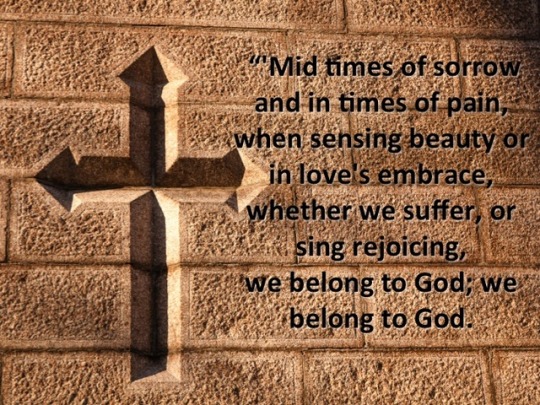
Belonging to God
When someone asks me about my personal relationship to God, my first spontaneous reply is a question: What do you mean by God? For decades, I have been speaking about religion with people all over the world, and I have learned one thing from this experience: the word God ought to be used with utmost caution if we want to avoid misunderstandings.
On the other hand, I find far-reaching agreement among human beings, once we reach that mystical core from which all religious traditions spring. Even those who cannot identify themselves with any organized religion are often deeply rooted in mystical experiences.
This is where I find my own reference point for the meaning of the term God. It needs to be anchored in that mystical awareness upon which all humans agree before they start talking about it.
In my best, my most alive moments—in my mystical moments, if you want—I have a profound sense of belonging. At those moments, I am aware of being truly at home in this universe. I know that I am not an orphan here. There is no longer any doubt in my mind that I belong to this Earth household, in which each member belongs to all others—bugs to beavers, black-eyed Susans to black holes, quarks to quails, lightning to fireflies, humans to hyenas and humus.
To say “yes” to this limitless mutual belonging is love. When I speak of God, I mean this kind of love, this great “yes” to belonging. I experience this love at one and the same time as God’s “yes” to all that exists (and to me personally) and as my own little “yes” to it all. In saying this “yes” I realize God’s very life and love within myself.
But there is more to this “yes” of love than a sense of belonging. There is always also a deep longing. Who has not experienced in love both the longing and the belonging? Paradoxically, these two heighten each other’s intensity. The more intimately we belong, the more we long to belong ever more fully. Longing adds a dynamic aspect to our “yes” of love. The fervor of our longing becomes the expression and the very measure of our belonging. Nothing is static here. Everything is in motion with a dynamism that is, moreover, deeply personal.
Where love is genuine, belonging is always mutual. The beloved belongs to the lover, as the lover belongs to the beloved. I belong to this universe and to the divine “Yes” that is its source, and this belonging is also mutual. This is why I can say “my God”—not in a possessive sense, but in the sense of a loving relatedness.
Now, if my deepest belonging is mutual, could my most fervent longing be mutual, too? It must be so.
Staggering though it is, what I experience as my longing for God is God’s longing for me. One cannot have a personal relationship with an impersonal force. True, I must not project on God the limitations of a person; yet, the Divine Source must have all the perfections of personhood. Where else would I have gotten them?
It makes sense, then, to speak of a personal relationship with God. We are aware of this—dimly at least—in moments in which we are most wakeful, most alive, most truly human. And we can cultivate this relationship by cultivating wakefulness, by living our human life to the full.
The Bible expresses these insights in the words, “God speaks.” Having been brought up in the biblical tradition, I am comfortable with its language, though I would be reluctant to impose it on anyone else. What matters is that we come to a shared understanding of what this, or any other, language wants to express. “God speaks” is one way of pointing toward my personal relationship with the Divine Source. This relationship can be understood as a dialogue. God speaks, and I am able to answer.
Wake Up Our Senses
But how does God speak? Through everything there is. Everything, every person, every situation, is ultimately Word. It tells me something and challenges me to respond. Each moment with all that it contains spells out the great “yes” in a new and unique way. By making my response, moment by moment, word by word, I myself am becoming the Word that God speaks in me and to me and through me.
This is why wakefulness is so preeminent a task. How can I give a full response to this present moment unless I am alert to its message? And how can I be alert unless all my senses are wide awake? God’s inexhaustible poetry comes to me in five languages: seeing, hearing, smelling, touching, and tasting. All the rest is interpretation—literary criticism, as it were, not the poetry itself. Poetry resists translation.
It can be fully experienced only in its original language. This is all the more true of the divine poetry of sensuousness. How then could I make sense of life if not through my senses?
When and to what do your senses respond most readily? If I ask myself this question, I think immediately of working in the garden. The hermitage where I am privileged to live for the better part of each year has a small garden. For fragrance, I grow jasmine, pineapple mint, sage, thyme, and eight different kinds of lavender. What abundance of delightful smells on so small a patch of ground! And what variety of sounds: spring rain, autumn wind, all year round the birds—mourning dove, blue jay, and wren; the hawk’s sharp cry at noon and the owl’s hooting at nightfall—the sound the yard-broom makes on gravel, wind chimes, and the creaking garden gate.
Who could translate the taste of strawberry or fig into words? What an infinite array of things to touch, from the wet grass under my bare feet in the morning, to the sun-warmed boulders against which I lean when the evening turns cool. My eyes go back and forth between the near and the far: the golden metallic beetle lost among rose petals; the immense expanse of the Pacific, rising from below the cliff on which this hermitage is perched to the far-off horizon where sea and sky meet in mist.
Yes, I admit it. To have a place of solitude like this is an inestimable gift. It makes it easy to let the heart expand, to let the senses wake up, one by one, to come alive with fresh vitality. Yet, whatever our circumstances, we need to somehow set aside a time and a place for this kind of experience. It is a necessity in everyone’s life, not a luxury. What comes alive in those moments is more than eyes or ears; our heart listens and rises to respond. Until I attune my senses, my heart remains dull, sleepy, half dead. In the measure to which my heart wakes up, I hear the challenge to rise to my responsibility.
Stay Alert
We tend to overlook the close connection between responsiveness and responsibility, between sensuousness and social challenge. Outside and inside are of one piece. As we learn to really look with our eyes, we begin to look with our heart also. We begin to face what we might prefer to overlook, begin to see what is going on in this world of ours. As we learn to listen with our ears, our heart begins to hear the cry of the oppressed.
We might begin to smell that “something is rotten in the state of Denmark.” We might sit down at table and taste the sweet and salty tears of the exploited which we import together with coffee and bananas. To be in touch with one’s body is to be in touch with the world—that includes the Two-Thirds World and all other areas with which our dull hearts are conveniently out of touch. No wonder that those in power, those interested in maintaining the status quo, look askance at anything that helps people come to their senses.
In my travels I notice how easy it is to lose attentiveness. Oversaturation of our senses tends to dim our alertness. A deluge of sense impressions tends to distract the heart from single-minded attention. This gives me a new appreciation for the hermitage, a fresh understanding of what solitude is all about. The hermit—the hermit in each of us—does not run away from the world, but seeks that Still Point within, where the heartbeat of the world can be heard. All of us—each in a different measure—have need of solitude, because we need to cultivate mindfulness.
The Practice of Gratefulness
How shall we do this in practice? Is there a method for cultivating mindfulness? Yes, there are many methods. The one I have chosen is gratefulness. Gratefulness can be practiced, cultivated, learned. And as we grow in gratefulness, we grow in mindfulness.
Before I open my eyes in the morning, I remind myself that I have eyes to see, while millions of my brothers and sisters are blind—most of them on account of conditions that could be improved if our human family would come to its senses and spend its resources reasonably, equitably. If I open my eyes with this thought, chances are that I will be more grateful for the gift of sight and more alert to the needs of those who lack that gift. Before I turn off the light in the evening, I jot down in my pocket calendar one thing for which I have never before been grateful. I have done this for years, and the supply still seems inexhaustible.
Gratefulness brings joy to my life. How could I find joy in what I take for granted? So I stop “taking for granted,” and there is no end to the surprises I find. A grateful attitude is a creative one, because, in the final analysis, opportunity is the gift within the gift of every given moment. Mostly this means opportunities to see and hear and smell and touch and taste with pleasure. But once I am in the habit of availing myself of opportunities, I will do so even in unpleasant situations creatively. But most importantly, gratefulness strengthens that sense of belonging which I mentioned at the very beginning.
There is no closer bond than the one which gratefulness celebrates, the bond between giver and thanksgiver. Everything is gift. Grateful living is a celebration of the universal give-and-take of life, a limitless “yes” to belonging. Can our world survive without it? Whatever the answer, one thing is certain: to say an unconditional “yes” to the mutual belonging of all beings will make this a more joyful world. This is the reason why Yes is my favorite synonym for God.
Brother David Steindl-Rast has been a Benedictine monk, since 1953, of Mount Saviour Monastery, in New York. He has written numerous books and articles, produced videos and audios, and is well known for his TED talk on gratefulness. This article is an excerpt from his new book, The Way of Silence: Embracing the Sacred in Daily Life.
1 note
·
View note